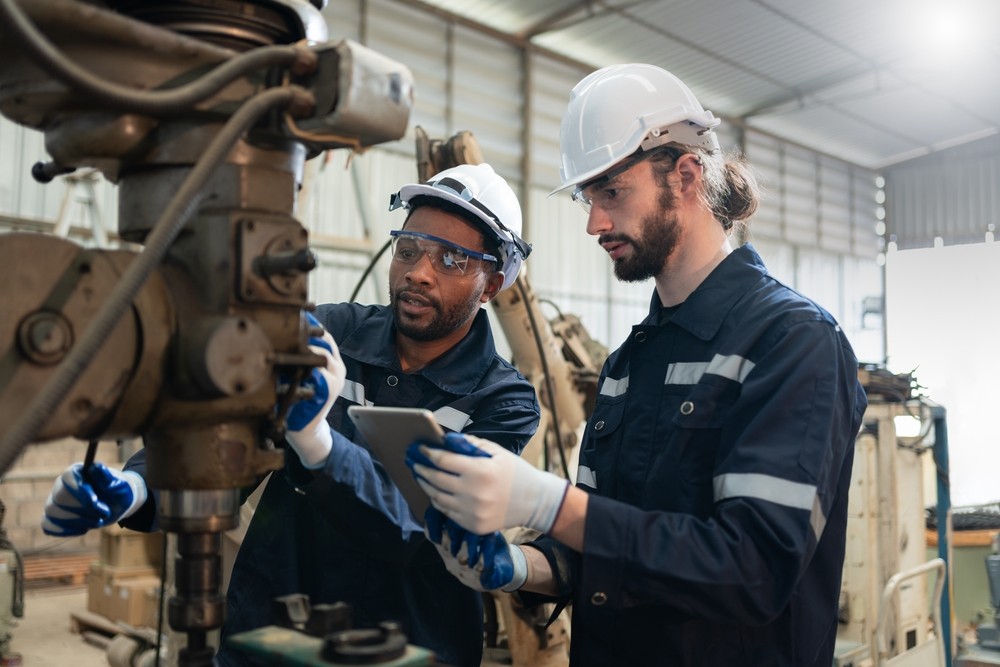4 Key Roles in Industrial Maintenance

Factory equipment is constantly in motion — working tireless hours to produce a never-ending stream of goods. And while it occasionally gets a rest during changeovers and line switches, manufacturing equipment needs the reprieve that comes with proper maintenance.
It takes a whole team to deliver a standard of maintenance aimed at keeping the value stream flowing. From planning and coordination of proper maintenance to the specific skills and knowledge required to resolve issues and service delicate systems, an industrial maintenance team is an invaluable part of factory operations.
Industrial maintenance is a team effort
Maintenance in the modern factory isn’t a one-person job. It takes a collaborative group of experienced maintenance professionals to keep today’s factory floor running consistently and efficiently to stay competitive in an increasingly evolving marketplace.
Keeping today’s complex machinery and equipment running takes a wide breadth of knowledge and expertise. Hydraulics, pneumatics, electrical, electronics, and even high-tech newcomers like artificial intelligence and sensor technology all require a certain level of expertise no one person can possess. Put simply, to keep equipment functional is a team effort.

Meet the maintenance team
Industrial maintenance teams rely on the skills, knowledge, and expertise of a wide range of professionals, each with their own roles and specific duties. Some of the most important roles in modern-day industrial maintenance include:
- Maintenance Technicians. The day-to-day job of a maintenance technician includes routine maintenance tasks, including planned and preventive maintenance. They often follow standard procedures to service assets or perform tests to determine the health of equipment.
- Maintenance Supervisors. These maintenance professionals organize and direct all activities around the day-to-day function of machines and equipment critical to the factory, while promoting safe production standards. They oversee the work of maintenance technicians, ensuring a company’s goals are met and all applicable regulations are followed — including (and especially) OSHA standards.
- Planners/Coordinators. While maintenance supervisors focus on the short term, ensuring today and this week are a success for a company, planners focus on long-term goals for the next several weeks or months. They maximize operating profit and equipment reliability by coordinating planned maintenance when it’s most effective.
- Industrial Engineers. Unlike technicians, who perform routine maintenance on equipment, engineers work only on equipment installations, diagnostics, or major repairs. They handle planning and analysis while designing tests and procedures to provide critical insights on equipment and assets and develop strategies to improve efficiencies and reliability.
Maintenance professionals are in demand
Industrial maintenance professionals have an especially strong career track. As machinery and equipment grow more complex and sophisticated, manufacturers in all sectors will need more skilled maintenance professionals to keep assets in good working order and maximize their ROI.
In short, more automated processes and computer-controlled machines are creating more work for industrial maintenance professionals — not less. These indispensable workers truly are the backbone of production, and modern manufacturing processes completely rely on them. A great maintenance team is the difference between consistent production issues and a well-flowing value stream.
